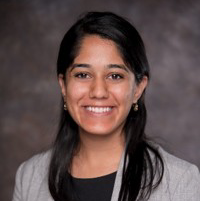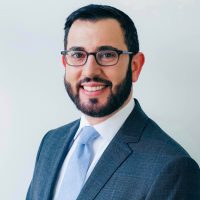The Next Generation of Public Health Leaders Must Focus on Human Rights
March 4, 2021
Gillings School of Global Public Health

Gillings School of Global Public Health The University of North Carolina at Chapel Hill (Jon Gardiner/UNC-Chapel Hill)
Twelve students from the University of North Carolina at Chapel Hill teamed up to publish a perspective in the American Journal of Public Health about why and how they — the next generation of public health leaders — must center human rights in their work.
“Health is a fundamental human right,” their article begins. “As a collective of undergraduate and graduate students working to monitor human right violations in public health responses to COVID-19, we have seen firsthand how vital human rights advocacy is to advancing the public’s health. Through research and study, we have analyzed how human rights advocacy serves as a critical tool for documenting abuses, building coalitions, and mobilizing campaigns for action to prevent disease and promote health.”
Representing the UNC Gillings School of Global Public Health, lead author Hanna Huffstetler, a Master of Public Health (MPH) student, developed this article with Caitlin R. Williams, a doctoral candidate in



maternal and child health, joined by Gillings undergraduate student Sonam J. Shah, Juris Doctor and MPH candidate Sonam K. Shah, and alumnae Lenore Hango and Tsion Ghedamu from the Department of Health Policy and Management. These co-authors, alongside those from the UNC Departments of Public Policy and Global Studies, have worked with Associate Professor Benjamin Mason Meier, JD, PhD, over the past year to monitor human rights realization in public health responses to the COVID-19 pandemic.
“We are really excited about this piece, because it brings together students from different disciplines and different stages of their studies to talk about where human rights work fits into this current moment in public health,” Huffstetler shares. “Building on the work of past generations, we explored what role we, as students, can play in carrying forward a vision of public health that centers human rights.”

Reflecting on the power of human rights, Hango notes that, “A human rights-based approach empowers individuals and communities to seek redress when their rights are violated — in other words, it adds in a layer of legal accountability. Instead of hoping for a benevolent government that won’t do abusive things, every person has the power to claim their rights and demand that governments fulfill their legal obligations.”
The group began working together early in the spring of 2020 to think about how human rights could be advanced in government responses to the COVID-19 pandemic.
“Our team has been working hard since the beginning of the pandemic to monitor media coverage of national policy responses to COVID-19,” Huffstetler says. “We saw notable violations of human rights — from deep disparities in health outcomes among minority groups to the violent silencing of clinicians, scientists and other whistleblowers. However, we also found examples of policies that supported rights, such as those that ensure that people’s basic needs are being met amid quarantine or lockdown measures. By highlighting these examples, we hope to show that public health responses can be designed in ways that protect rights and ultimately lead to better health.”
The groups’ interest in public health and human rights predated the pandemic, however.
“Several of us also wrote about our concern that human rights have become a ‘shibboleth’ in public health — a term used to signal commitment to social justice without actually changing the way that work gets done,” Williams shares. “Beyond this academic analysis, we wanted to follow up with a more concrete piece that spelled out how specific public health actions can advance, neglect or violate human rights, and then give public health professionals specific guidance on what it would mean to lead with rights instead. The pandemic provided timely examples just as we were beginning to think about this next piece.”


Around the globe, many health systems perpetrate unequal care for different populations, as they were built from the beginning upon deeply-rooted economic and social inequities. Public health work that realizes human rights provides an entry point for deconstructing and abolishing systemic health disparities.
Issuing a call to action to other students, the authors conclude that, “Our generation must become human rights advocates to achieve the promise of health for all.”
In order to do so, they offer parting recommendations for self-care that they hope will keep other students engaged for the long-term: “Doing what we can to eat well, stay active, get enough rest and maintain healthy relationships will help sustain us and support our long careers to realize justice in public health through human rights.”
